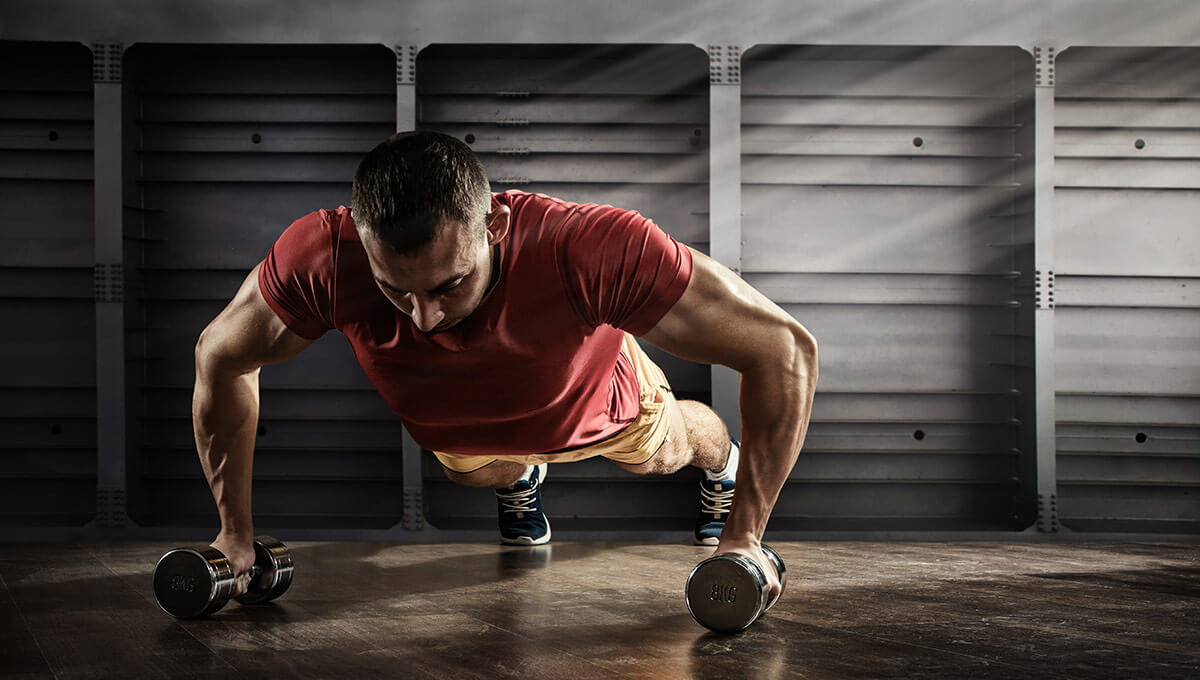
At what time of day is training most effective?

Menstruation can be quite problematic for many women, and often leads to various sacrifices. Is the common belief of limiting physical activity during menstruation right?
Every month, the female body informs us of the upcoming menstrual cycle. Depressed mood, mood deterioration, lack of energy and sometimes intense abdominal pain are ailments that women have to deal with for some time. Obviously, this condition is temporary and everything returns to normal once the period has ended. While menstruation itself does not have to be a nuisance, a few days before it starts - when the progesterone level is its highest - discomfort may prevail. It is difficult to talk about feeling motivated to do any activity, when persistent ailments can throw you off balance.
But the pain is not always intense enough to keep us away from full activity! Often women decide to wait out this time and give up training as a preventative measure, which in their opinion could only make the current condition worse. An equally frequent solution is to reach for sweets, which allow the release of endorphins in the body. Their action helps to alleviate persistent irritation and facilitate the restoration of emotional balance. During menstruation women often feel sad, tend to cry and have difficulty maintaining proper concentration.
However, it's hard to expect results sitting under a warm blanket and polishing off another bar of chocolate. Not to mention that sweets are packed with calories and a "great" source of sugar and unhealthy fats. Very often, the effects achieved during weight loss are lost and all the work is wasted. The vicious circle repeats itself, and the best excuses are "an innate tendency to gain weight" or "an overly slow metabolism". With such an approach, you can't hold a grudge against anyone except yourself.
They are not banned, that's for sure! Every woman experiences her period differently. However, if menstrual pain can be relieved with ordinary painkillers, then exercise should certainly not be considered as something that is off limits! Especially when you practice regularly! What's more, less intense training may result in many important benefits:
Try to listen to your body and understand what it wants to communicate to you - the level of persistent pain is a determining factor for the workout. In the case of severe ailments, it is worth doing activities that relieve the abdominal muscles, such as yoga, running, swimming, pilates or stretching. In the case of intensive bleeding, it is worth giving up strength training or interval training, which can only intensify the blood loss. However, there is no universal training plan for exercise during menstruation. If the gynaecologist sees no reason to avoid it and you still feel well, nothing stands in the way of doing some exercise at the normal intensity!
Often, during weight loss menstrual problems occur, which is the result of an excessive energy deficit and the consumption of too few calories! Starving and attempts to get rid of the extra kilograms very quickly may often lead to various hormonal disorders, which are a consequence of vitamin and mineral deficiencies in the daily diet. Lack of regularity in the subsequent cycles or excessive pain during menstruation is also a frequent effect of an ill-balanced diet.
Physical activity is associated with an increased nutritional demand, which can be difficult to cover with daily nutrition. Especially if the diet itself does not provide the optimal amount of the most important active ingredients. They all are important, but in the context of menstruation, special attention should be paid to:
The above-mentioned ingredients are best delivered in the form of a vitamin complex specifically designed for physically active women! The Olimp Labs and Olimp Sport Nutrition brands offer several formulations that will supplement your diet with the necessary components and provide quick and convenient support every day. Formulations such as Vita-Min plus for Women or Vita-Min Multiple Lady from the Queen Fit series are products made in the Olimp Laboratories pharmaceutical company, using the highest quality ingredients, tested for microbiological purity, which were selected in easily assimilable forms. This ensures that the supplements are effectively absorbed. In turn, the carefully selected levels of the individual components guarantee the safety necessary for use.
The information below is required for social login
Sign In
Create New Account